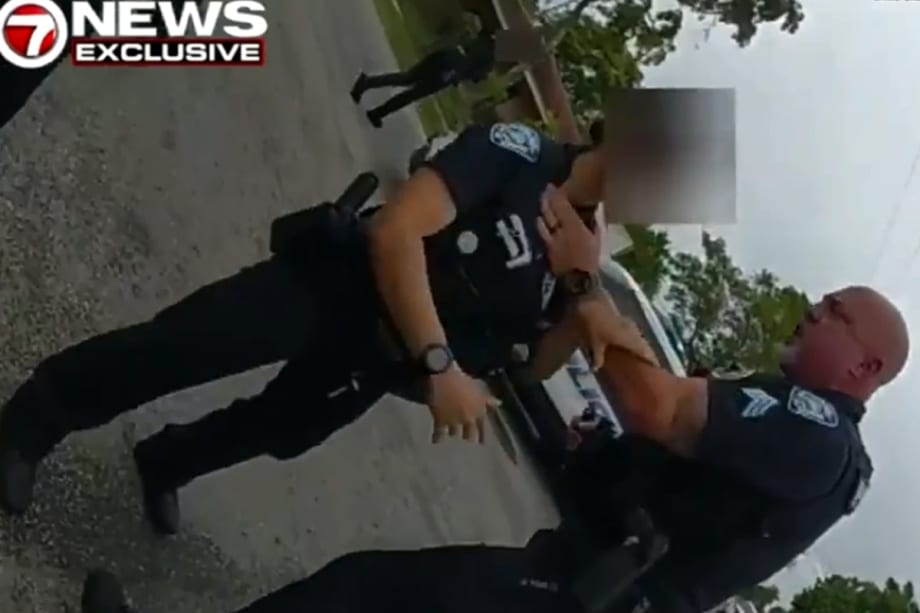The New York Post recently reported that a 46-year-old sergeant with the Sunrise (FL) Police Department is under investigation after he was seen on video "grabbing a female cop by the throat when she tried to pull him away from a handcuffed suspect."
During the incident, officers had arrested a man for aggravated battery and were escorting the suspect to a waiting patrol vehicle when they encountered difficulty getting the man into the back seat. A confrontation ensued during which the female officer pulled at the sergeant's belt in an apparent effort to remove him from the area.
Audio on the recently released body-camera footage was muted, so it's impossible to hear what was said, but the sergeant clearly did put his left hand on the officer's neck and pressed her toward another parked vehicle.
In a WSVN-TV news report, Sunrise Police Chief Anthony Rosa said that he considered the sergeant's actions "disgusting" as well as "inappropriate and unprofessional."
Chief Rosa said that he believed that the female officer to be acting according to state law requiring officers to intervene when they anticipate the possibility of excessive use of force.
Missing Element
As was covered in this space earlier this week, Lieutenant (ret) Dan Marcou says that training officers to intervene during an incident in which a fellow officer is potentially overstepping policy should be more regularly and directly addressed.
"One of the things that I trained in use of force was to physically stop an officer who's 'losing it'," Marcou told POLICE Magazine. "An officer who's 'losing it' is going to do damage to every officer there—and we've discovered that sometimes that'll be multiplied nationwide."
Marcou emphasized that the key to successfully intervening in what he calls "officer overdrive" is the prior agreement between officers that everyone on patrol should be trained to recognize a predetermined code word or phrase used to communicate with one another in order to keep everyone under control.
In the abovementioned incident, the officer who intervened seems to have acted according to her training, but there is the possibility that the key element of an agreed-upon protocol between all officers at the scene—a phrase or signal to the officer in danger of "losing it" that peer intervention is taking place—was either unheard or misunderstood by the sergeant, or simply didn't exist in the first place.
Without the benefit of the audio, it's all but impossible to say. However, it's clear hat the officer attempting to help her sergeant—specifically, to keep him from doing something that result in a disciplinary action for excessive use of force—became the target of the sergeant's ire.
This outcome was—obviously—sub-optimal for everyone concerned.
Ongoing Training
The takeaway for police trainers is that wherever a "duty to intervene" policy exists—and it is becoming nearly universal across law enforcement—ongoing training should emphasize not only the tactics of the intervening officer, but the appropriate response of the receiving officer.
This can be done during defensive tactics training, as an in classroom / tabletop setting in academy training or in-service scenarios, as a discussion during FTO training, as well as simply a roll call reminder.
As Marcou correctly stated, this training can help keep officers safe "physically, legally, and emotionally."












